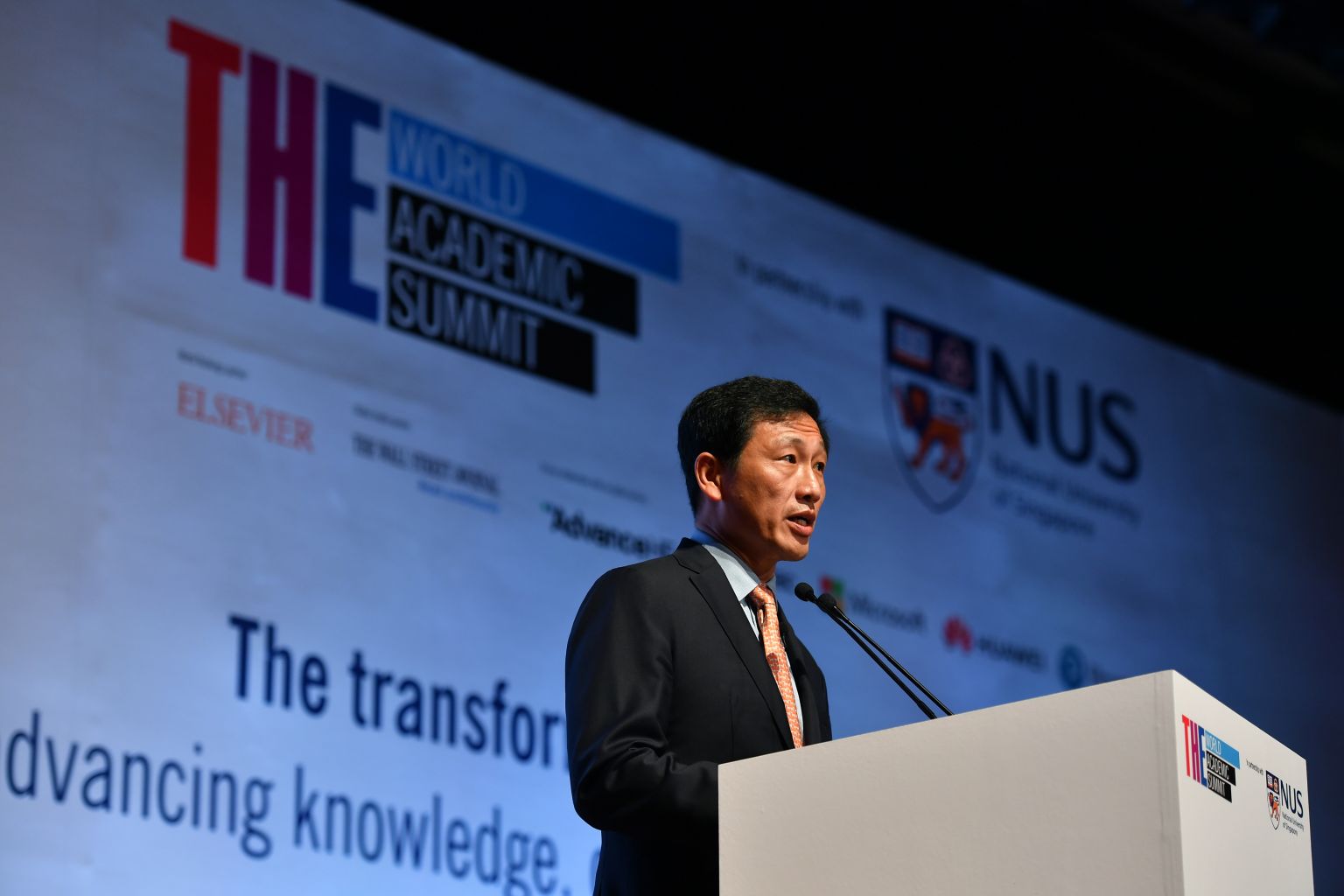New global ranking to evaluate universities' wider impact on society to be out next year
Sign up now: Get tips on how to help your child succeed

Education Minister Ong Ye Kung at the Times Higher Education World Academic Summit on Sept 26, 2018. He said that universities should be evaluated in collaboration with the world outside of academia.
ST PHOTO: CHONG JUN LIANG
Follow topic:
SINGAPORE - A new way of ranking universities that takes into account factors like the quality of jobs their graduates land, their contributions to economic growth and innovation and the global partnerships they forge will be unveiled next year.
The Times Higher Education University Impact Rankings aims to provide a broader assessment of a university's impact on society.
The initiative, which will be launched as a pilot in April next year, is in line with Education Minister Ong Ye Kung's call for global rankings to measure an institution's impact beyond publications and citations.
He noted in a discussion at the Times Higher Education World Academic Summit here on Wednesday (Sept 26): "Evaluate the effectiveness of a university in collaborating with the world outside of academia - industries, society, communities, government - and delivering impact in all these sectors."
Mr Ong was reiterating the views of the International Academic Advisory Panel that met in Singapore in June to discuss the higher education sector here.
The panel - comprising university leaders and chief executives of global companies - had agreed that current rankings rely too much on research indicators and overlook other areas like experiential learning.
The new league table that Times Higher Education will release next April will assess universities based on 11 United Nations Sustainable Development Goals adopted in 2016. These include providing quality education, achieving gender equality and encouraging innovation.
Mr Phil Baty, editorial director of global rankings at Times Higher Education, said in a statement earlier this month: "Universities contribute a huge amount to society, and this data can help capture unique new insights on how they're addressing some of the most pressing global issues.
"(New metrics on impact) is an area we've been exploring and consulting on for many years and takes us well beyond traditional rankings parameters of research and reputation."
The latest Times Higher Education World University Rankings will be released on Wednesday night.
Mr Ong noted at Wednesday's summit that Singapore has built a good foundation in research and development, drawing from the European traditions in industry-based crafts and guilds and the American research universities.
"Yet all of us should constantly question how the current research model, and system of ranking and evaluation, need to evolve with the times," he said, adding that the definition of a university education and degree is going through a major rethink.
"There is a realisation that lifelong learning will change the rhythm and mix of education. There is less pressure for universities to front load knowledge during formal years of undergraduate studies, and more effort is required to make university education experiential."
Universities also need to join hands with the outside world by working with industry and recognising how academia can contribute to industry and the government, said Mr Ong.
The three-day summit, which ends on Thursday, is being hosted by the National University of Singapore.

